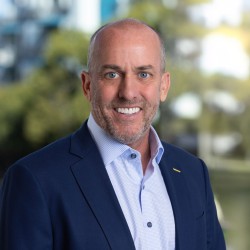I’m a Small Business Owner, Five Years from Retirement. What Should I Do?
- Business Owners

Let me introduce you to Sam (not his real name). Sam has lived in the community his whole life, and over the years, he has built a solid reputation as well as a thriving construction company. Sam knows everybody, from the people behind the counter at the local builder’s supply store to the officers of the local banks. He has operated intelligently, keeping the business going through boom times and lean years alike. Sam is in his early 60s, and over the past couple of years, he’s started to realize that he probably can’t—and doesn’t want to—keep going at his present pace for much longer. He’d like to retire in the next five years, relieving himself of the stress that comes along with running a business and instead spending more time with his family and traveling.
But Sam isn’t sure how he’ll fund the kind of retirement lifestyle he wants. He has money in a 401(k) plan, and he’ll reach full retirement age within the next five years, so Social Security will be available. His wife, Linda, was a public school teacher for over twenty years, so she can start drawing a pension soon. But other than that, most of Sam and Linda’s net worth consists of the value of his business.
What can Sam do to realize the maximum value from his company, if he decides to sell it? What kind of succession planning should he do? How can he make his business most appealing to qualified buyers?
By the way, people like Sam are more common than you might think. According to the Pew Research Center there were about 74 million baby boomers as of 2019, and a large percentage of them will be retiring over the next few years. In fact a survey by the Exit Planning Institute indicates that 70% of business owners age 50 or older plan to sell their businesses within the next 10 years, and the Small Business Administration estimates that some 10 million Boomer-owned businesses will be sold from 2019 to 2029.
However getting the most from the sale of a small business requires some careful planning. Further, there are some things that small business owners can and should do when approaching retirement to make sure they’re ready and able to transition into a satisfying retirement lifestyle. Let’s take a look at a few important steps you should consider if you anticipate retiring in the next five years.
Know your value.
This may seem obvious, but too many small business owners spend so much time in the business that they lose track of the business. Especially for those who anticipate using the proceeds from selling a company to fund a significant portion of their retirement, having an accurate valuation is a must. A professional valuation expert can help you take into consideration cash flow, customer base, assets, and other factors that directly impact the value you can justify to a potential buyer. For some businesses (construction, manufacturing, and others), seasonality and business cycle considerations may also be important. The more you know going in, the better prepared you’ll be to get the maximum value from the sale.
What’s your succession plan?
We've written previously about the potentially tremendous value you can add to your business by creating a solid succession plan. And especially if you’re looking at retiring in the next few years, potential buyers—not to mention your employees—will be very interested in understanding how the business will continue, once you’re no longer a part of it. In addition, a good succession plan will provide important indications of how you envision the future growth of the business: its strengths, its areas for improvement, and the resources—including the people—available to keep the business successful. Even if your plan is to sell the business to a child or a key employee, having a carefully conceived succession plan provides important continuity that can ease the transition for everyone.
Diversifying your assets.
Many small business owners have said, “My business is my retirement plan.” That makes perfect sense; you’ve spent years building your company, and it holds immense value—not just financially, but emotionally as well. But the fact is, if the bulk of your net worth is tied up in your enterprise, you’re in what financial advisors call a “concentrated position”: your financial well-being is dependent on the value of a single asset. On the other hand, diversifying—transferring portions of your financial assets into a variety of other assets—can put you in a more secure position: putting your eggs in many different baskets, so to speak. This is where retirement accounts—IRAs, SEPs, 401(k)s (including “solo 401(k)s” where appropriate), and others can provide tax-advantaged opportunities to build wealth to fund 30 plus years of retirement spending without being excessively dependent on a single asset.
Focus on debt and working capital.
A business that is running “lean and mean” is generally more attractive to buyers than a company over-leveraged by excessive debt. At the same time, a company with too much cash on hand can cause prospective buyers to question how much capital is required to keep the business running. At the point of sale, the seller will want to take as much cash as possible out of the business, while the buyer will want to hang onto as much as they can. These matters can be anticipated and woven into the selling strategy with the help of a professional valuation, as mentioned above.
Back away slowly.
As the time draws nearer when you plan to retire, you should start handing over more and more of the responsibility of the business to those you plan to leave in charge. This accomplishes a couple of things: first, it demonstrates to potential outside buyers that the business is not dependent on you for ongoing viability; and second, it gives confidence to internal successors (who may include your buyers) that they are empowered and ready to take over. Incidentally, this also provides you with a logical “glide path” to transition into the retirement lifestyle you’ve planned.
Quantum Financial Advisors understands that your business is as unique as you are. Our fiduciary responsibility to our clients ensures that the plans and strategies we help them devise are designed to deliver results that are always in the client’s best interests. To learn more, read our article, “Minding the Storekeeper: What Small Business Owners Need to Know about Retirement Planning.”
DISCLOSURE: Quantum Financial Advisors, LLC is an SEC registered investment adviser. SEC registration does not constitute an endorsement of Quantum Financial Advisors, LLC by the SEC nor does it indicate that Quantum Financial Advisors, LLC has attained a particular level of skill or ability. This material prepared by Quantum Financial Advisors, LLC is for informational purposes only and is accurate as of the date it was prepared. It is not intended to serve as a substitute for personalized investment advice or as a recommendation or solicitation of any particular security, strategy or investment product. Advisory services are only offered to clients or prospective clients where Quantum Financial Advisors, LLC and its representatives are properly licensed or exempt from licensure. No advice may be rendered by Quantum Financial Advisors, LLC unless a client service agreement is in place. This material is not intended to serve as personalized tax, legal, and/or investment advice since the availability and effectiveness of any strategy is dependent upon your individual facts and circumstances. Quantum Financial Advisors, LLC is not an accounting or legal firm. Please consult with your tax and/or legal professional regarding your specific tax and/or legal situation when determining if any of the mentioned strategies are right for you.
Please Note: Quantum does not make any representations or warranties as to the accuracy, timeliness, suitability, and completeness, or relevance of any information prepared by an unaffiliated third party, whether linked to Quantum’s website or blog or incorporated herein, and takes no responsibility for any such content. All such information is provided solely for convenience purposes only and all users thereof should be guided accordingly.
For more information about Quantum and this article, please read these important disclosures.
- Business Owners
David DeWolf, CPA, MBA, CEPA, CFP®
David DeWolf is the Chief Financial Officer of Quantum Financial Advisors, LLC. David is also a Financial Advisor directly to clients and a founding partner of the firm.
Read More









